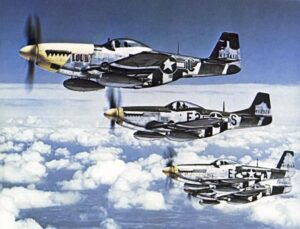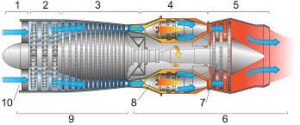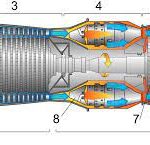These are some very good looking aircraft.

After four decades of tinkering with weight, aerodynamics, engine power, and a host of other variables, the US produced what many consider to be the finest prop-driven fighter in the world. These babies were designed for long range escort missions and still managed to be effective dogfighters despite the heavy demands placed on them for endurance. They fought well and looked good while doing it.
And then this showed up:

Instead of internal combustion shoving pistons that drove a propeller, this engine swallowed air, compressed it, then burned fuel and exhausted the mix rearward to shove the aircraft forward at astonishing speed. In one fell swoop the Germans went from struggling to stay on par with American fighters to jumping ahead – they leapfrogged the Thunderbolts roughly 425 mph by more than 100 extra mph and changed the face of war forever.
But this post isn’t about aircraft. It’s about tabletop RPGs. It’s about how decades of tinkering around the edges can produce some mighty fine fun, but a simple change in fundamentals can turbocharge your gaming. The OSR has spent two decades tinkering with conventional D&D play. They’ve analyzed narrative style D&D and old-school (meaning 1980s) design to the nth degree and managed to squeeze everything they could out of her engine. Through herculean efforts they may manage to wring out a few more drops of novelty, but they’ve pretty much hit their limit.
On the other hand, looking back to the 1970s style of D&D – the style Gygax captured in the AD&D core books – the BROSR has performed a quantum leap in gaming technology that apparently has to be experienced to be believed. Checking your storytime gaming at the door and embracing the challenges of oracular dice and full player autonomy opens up whole new vistas of exploration, both within the generated story and character study, but exploration of the AD&D rules themselves as well.
For decades we’ve been told that the DMG is a hot mess that lacks a coherent message and badly needed an editor to “clean up the organization”. Those who embrace the game love it for the countless nooks and crannies and discourses and blind alleys filled with shadowy corners. All of them offer surprises and new discoveries for those brave enough to trust Gary. Embracing the long taboo of PvP play has forced a reconsideration of the DM as the storyteller and principal architect of pretty hallways, and empowered players to take a far more active role in world and campaign design than anything you’ve seen in the OSR.
This is not meant to denigrate the OSR. People still race turboprop planes. People still LARP as dogfighters using restored aircraft and laser-tag style shoot-’em-ups. There are a lot of ways to skin that cat, and if that’s your jam, more power to you. But for those of us interested in pushing the limits of what RPGs can do, there’s only one technology that will let you break the gaming sound barrier, and that is the venerable ruleset encased in the three core books.
Have fun back there, guys. We’ve got adventures to explore.

